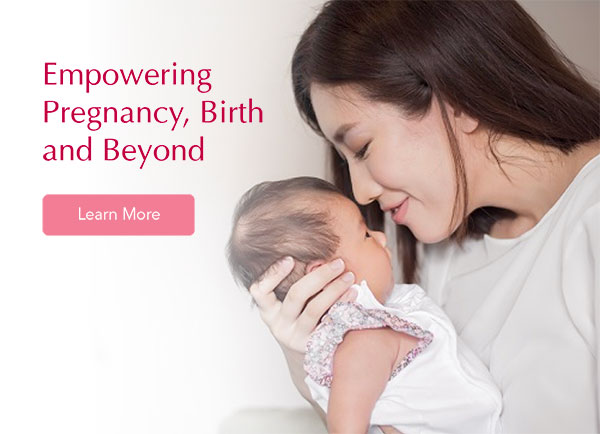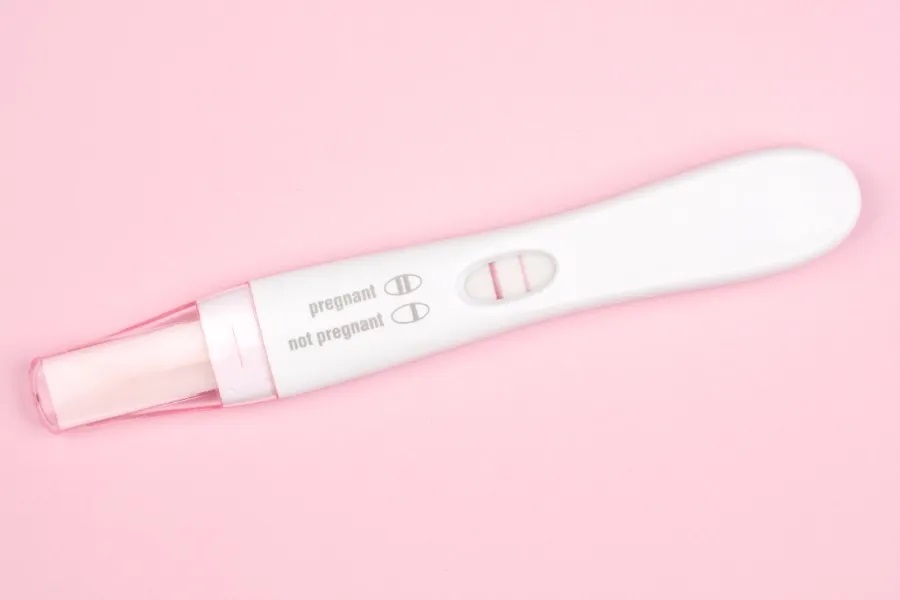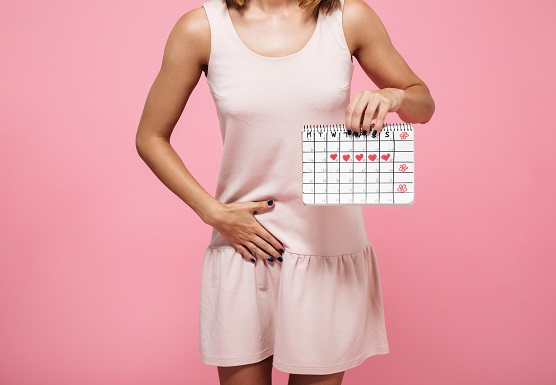Empowering Pregnancy, Birth and Beyond

On 29 October 2020, Mount Alvernia Hospital presented a livestreamed event, sponsored by Abbott. Dr Chua Yang, the founder of A Clinic for Women who specialises in a holistic approach to women’s health, and Ms Jacqueline Loh, a specialist in maternal and paediatric nutrition from Mount Alvernia Hospital, brought their professional perspectives to a wide range of topics. The questions posed by the audience provided a real-time insight into the concerns of expecting and new mothers today.
On practices and precautions during pregnancy
Q: When is a good time to see a gynaecologist when you fall pregnant?
Dr Chua: A good time to do the first ultrasound scan is around six to seven weeks from the last menses. That early pregnancy scan will help ascertain the dates, because not everybody has a 28-day cycle, confirm that the pregnancy is not an ectopic one, and rule out multiple pregnancies like twins and triplets. We can also diagnose whether twins are identical or non-identical very early in the pregnancy.
Q: Should I be concerned if I cannot keep food down during my first trimester?
Dr Chua: If there is occasional throwing up, and throughout the day you are able to hold down food, there is no cause for concern. A small amount of weight loss during the first trimester is quite acceptable. However, if you cannot keep anything down, you should visit your clinic for an IV drip to avoid dehydration.
Q: What is the recommended amount of weight gain during pregnancy?
Dr Chua: The amount of weight gain is relative to the mummy’s starting weight. If the mummy’s weight falls within the correct BMI before pregnancy, we’re hoping that she puts on about 12 kilograms on average through the whole pregnancy. A lot of that weight gain happens in the third trimester, and that amount factors in a moderate amount of water retention. In general, for the first six or seven months, a mummy should gain a kilogram to one and a half kilograms each month, but in the third trimester that goes up to about two kilograms a month.
Q: What should I do if my baby is sitting on my bladder?
Dr Chua: As the baby grows, they will exert pressure on your bladder and this cannot be avoided. It is important to not let that feeling make you drink less. Hydration is very, very important. Drink frequently – little sips at a time.
Q: Why is it important to sleep on your left side during the third trimester?
Dr Chua: In the third trimester, it is wise to avoid lying on your back so that your heavy uterus does not press down on your aorta and inferior vena cava (IVC). Sleeping on your left side allows the optimal flow of blood to your heart via your IVC, which is positioned on the right side of your body. This in turn helps avoid water retention caused by restricted blood circulation.
On supplements, vitamins and diet
Q: Are there any supplements or vitamins that should be taken when planning a pregnancy?
Jacqueline: Folic acid helps the body produce blood, which is very important during pregnancy for both mum and baby, and helps ensure the healthy development of the baby’s spinal cord, which happens very early on in pregnancy. You can get folic acid from leafy green vegetables and cruciferous vegetables like cabbage and cauliflower, or from a supplement.
Q: Are there any foods that should be avoided during pregnancy?
Jacqueline: Because the immune system of a pregnant woman is weaker, you should avoid foods that have higher rates of bacterial contamination such as chicken, fish, pork and seafood, soft cheeses and blue cheeses. Also, high-mercury fish such as white tuna, shark, swordfish and king mackerel should be avoided. You should abstain from alcohol and limit your caffeine intake to 200 mg per day.
Q: Should I be eating for two during pregnancy?
Jacqueline: There is a misconception that you should be eating double the normal amount during pregnancy. The calorie requirements for a pregnant women only increase during the second and third trimesters, by about 300 to 450 additional calories. It is better to focus more on the nutrients rather than the calories. Calcium, iron and omega-3 are the nutrients you want to bulk up on. For calcium, you can add more dairy to your diet. For iron, you should eat red meat or chicken. And you can get omega-3 from oily fish or supplements.
Q: How can I cure food cravings?
Jacqueline: You cannot really ‘cure’ food cravings, but you can curb them by noting their timing. To limit your indulgence in unhealthy foods, I suggest you do not go to the supermarket on ‘craving days’ or during ‘craving hours’.
Q: Can vegetarians obtain optimum nutrition during pregnancy?
Jacqueline: Vegetarians must simply ensure that they obtain sufficient of those nutrients that are more abundant in animal proteins, such as vitamin B-12, vitamin B, calcium, protein and iron. They can eat eggs and dairy products as well as non-haem iron sources like spinach, broccoli and beans. As these are not as well-absorbed by the body, they could be combined with a vitamin C-containing food such as fruit and an iron-fortifi ed cereal to enhance their bioavailability. Vegans generally need supplementation for vitamin D and calcium.
On giving birth
Q: What are your thoughts on a natural birth vs. a caesarian section?
Dr Chua: It is important to recognise that there are many situations where the option of a natural birth may not apply. However, natural birth usually amounts in the least amount of complications. We are not talking about the ease of the birthing experience, especially for the first time. Caesarian sections tend to be quite easy for the first birth, as we are working with a ‘virgin abdomen’ that has not been operated on. However, subsequent births and future abdominal surgery will carry a higher risk of complications, especially adhesions from scarring, which could have been avoided if the first birth was a vaginal one. For every subsequent pregnancy, the duration of the labour is generally halved. It gets easier and easier. Don’t just think short-term, think about the long-term wellbeing of the mother and the baby.
On the post-natal period
Q: Does diet affect the nutritional quality of breastmilk?
Jacqueline: There are certain foods called galactogens, which help with breastmilk production. However, it must be combined with efficient clearing of the breastmilk. By eating galactogens alone, the milk will not magically come. Lactation cookies can help, but it is important to balance the nutritional value with the taste.
Q: How do you detect the signs and symptoms of post-partum depression?
Dr Chua: The signs may not show up in the ward, as the mother is resting and has a strong support system around her. Mothers can feel overwhelmed when they go home, which is why it is very important for mummies and daddies to plan the division of labour before the birth of their baby. Husbands are usually the first to notice that the wives are not behaving the same as before. When I see the parents about a week after the birth, I ask about mood changes in a natural way. I look out for mothers who get teary, or feel very insecure or inadequate about their ability to care for their baby. While some anxiety is normal, if serious depression or psychosis sets in, the mummy needs more specialised help.
Q: What do you think of baby-led weaning?
Jacqueline: At 6 months of age, there are often multiple care-givers, and everyone must be on the same page. If some family members are not so keen, especially older family members who may feel nervous about baby choking on, say, a chunk of carrot, it’s probably better to stick to the traditional method. There is no absolute right or wrong, and both will lead to the same outcome.
IN CONCLUSION
Q: What is your key message for expecting and new mothers?
Dr Chua: Good communications are very important. Never be afraid to ask questions – of your gynaecologist, your lactation consultant and your paediatrician. Do not just rely on Dr Google. Make sure that you are finding out specifically about ‘you’. Your doctor knows you, and is the preferred source of information.
Jacqueline: All advice should be individualised. Every pregnancy is going to be different. With regard to food, the main takeaway is not to be too stressed out about it. To ensure the safest food for you and your baby, always choose foods that are stored well and fully cooked. You do not need to choose all organic foods or the most expensive foods – just ensure that the correct nutrients are there.
Dr Chua Yang
A Clinic for Women
Obstetrician and Gynaecologist
Block D #08-58
Nutrition & Dietetics Department
Tel: +65 6347 6702
Mon to Fri: 8.30am to 5pm
Sat: 8.30am to 1pm
Please obtain a doctor’s referral before you call for an appointment.
Highlights are taken from our FB Live, ‘Empowering Pregnancy, Birth and Beyond’ on 29 October 2020. Click here to watch the whole session.
This article is taken from our My Alvernia Magazine Issue #42/43. Click here to read the issue on our website or on Magzter.



